Turnitin Alternatives: Which is Best for Detecting AI Content?
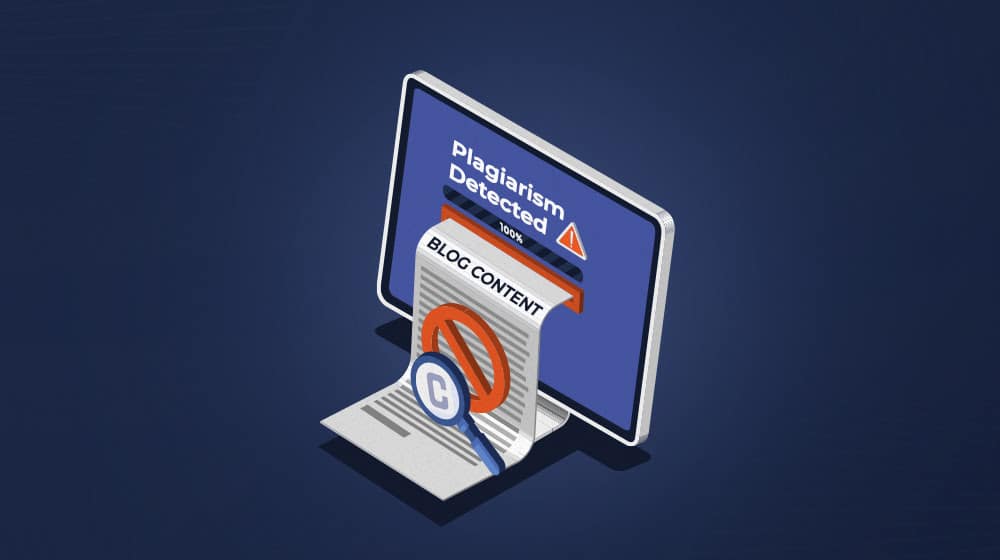
When you're publishing web content, it's important that your content stands as a unique and powerful piece of information. It's (relatively) easy to do this when you're creating the content yourself, but what if you're working with freelance writers or a content marketing agency?
These days, there are three kinds of content abuse you need to watch out for. There are also a lot of tools that can help you detect them. Let's talk about them!
 30 Second Summary
30 Second Summary
You need to watch out for three types of bad content when working with writers. You can spot copied content by searching exact phrases in Google, but some thieves use non-indexed sources. You'll find spun content has the same structure with swapped words. AI-generated content is trickier to catch, but new tools help detect it. You can use several plagiarism checkers like Copyscape, Quetext or Originality.AI to scan your content. Most tools charge per word or document, with prices ranging from $10-70 monthly.
The Three Kinds of Content Abuse
First, let's talk about the three different kinds of content abuse, and how you can identify them on your own.
The first is copied content. Copied content is easy to spot most of the time, but not all of the time. That's important!
Copied content is, obviously, content that is copied verbatim from another source. It's plagiarism, it's theft, it's intellectual property violation, whatever you want to call it. It's usually easy enough to detect simply by running a sentence or two from your content through Google (or another search engine) with quotation marks to ensure you're looking for the exact phrase.
Why do I say it's findable most of the time but not all of the time? Sometimes, the people who steal content are clever and use sources that aren't indexed. Maybe they stole it from a book, or a print magazine that didn't publish the articles online, or content behind a paywall.
You can also run into issues with content that flags tools for plagiarism when it's fine. Direct quotes - when they're cited - do this a lot but are perfectly acceptable. You can also get the same issue with common sentence structures. This is why tools like Copyscape give you a percentage of plagiarism so you can judge for yourself.
The second kind of abusing content is spun content. Spun content used to be huge, but now it isn't very common, and the reason is the third kind of abusive content. Still, you come across it from time to time. Spun content is just existing content with the words changed out. Instead of saying "abusive content," you might say "problematic text," but otherwise, leave the sentences the same.
It's harder to detect, but because the structure is the same, you can often find it with the same Google techniques, just without the quotes. And, of course, Google itself can often detect it because of its pattern-based analysis of text in its index.

The third kind of abusive content is AI-generated content. Setting aside the issues of the source of AI training data and the ethics involved, AI-generated content is often essentially just spun content with more structure variance. Sometimes, it's not even that well hidden. It's fairly easy to find ways for the AI generators to simply copy existing content, and it's the subject of ongoing lawsuits.
AI is harder to reliably detect, but many of the modern plagiarism detectors are starting to incorporate AI generation algorithms as well.
What TurnItIn Detects
So, what is TurnItIn, and what does it detect?
TurnItIn is one of the larger and more popular plagiarism detectors, meant primarily for schoolwork. At every level, from grade school through university, detecting dishonest academic submissions is a significant issue. TurnItIn was created as a way to check essays and similar homework for plagiarism; first for direct copying, later for spun content, and now for AI identification.

The modern TurnItIn detects all three kinds of content abuse, and it's generally pretty good. It's also well-integrated into many different e-learning platforms, so instructors can access it directly from their dashboards or have submissions scanned and reports attached automatically.
The downside is that it's largely only for this purpose. TurnItIn is primarily only available to educators and people with .edu mail addresses, and the pricing is meant for educational institutions to match. It's also reportedly fairly strict and can flag content for simple short phrases, even down to brand names that can't be written another way.
So, what can you use instead of TurnItIn?
Alternatives to TurnItIn
Fortunately – or unfortunately – there are dozens of alternatives to TurnItIn that you can try out. I've only used a few of them myself, so I can't speak to the quality of all of them, so I'll just present the options for you here. If there's one you love that I've missed (or if you think one I've listed is exceptionally bad), feel free to let me know in the comments!
Quetext
Quetext has two different tools, one for plagiarism and one for AI detection. It has a very nice interface with color-coded results to indicate what kinds of violations are found in a given passage, and as a bonus, it supports a variety of languages, including half a dozen forms of English, which are frequently an issue with certain detectors.
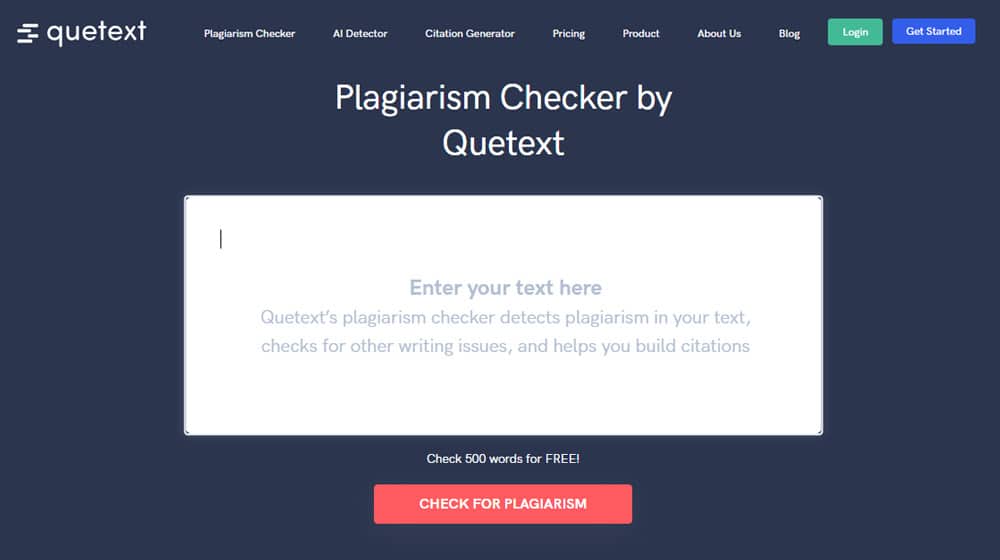
Their basic paid version also includes spelling and grammar checking, line-by-line analysis, and more, starting at $16 per month. That plan gets you 100,000 words per month of content to check. That's roughly the output of one of my talented writers each month to give you some perspective.
Grammarly
Grammarly is most commonly known as a spelling and grammar-checking tool. I've used it extensively, and I've found it to be mostly passable, but it very often recommends poor-quality or just incorrect suggestions, and some of its recommendations actually make your content trip other AI detectors, especially commas.
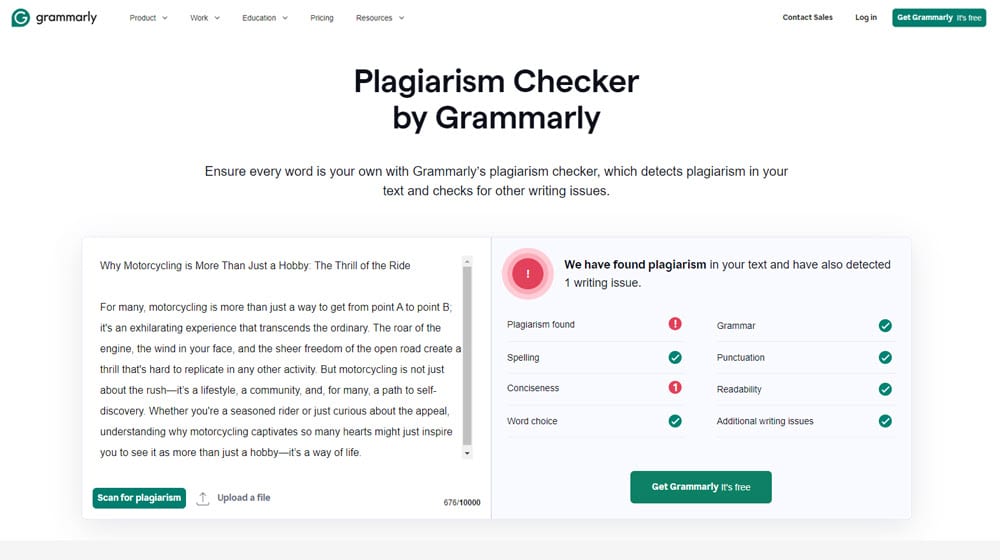
They've been integrating AI into their products for a while now, so that doesn't surprise me. Grammarly does have a plagiarism detector, though, which can do up to 10,000 characters in a scan for free or an unlimited amount with their paid program.
Copyscape
Copyscape is, in my mind, the baseline for plagiarism detection. It's good, it's accurate, and while it can occasionally be overzealous or point you to a "source" that has nothing on it or has been broken for years, it's still relevant. Their premium service operates on a credit system, and it's generally quite cheap. It's something like a quarter to scan a post like this one.
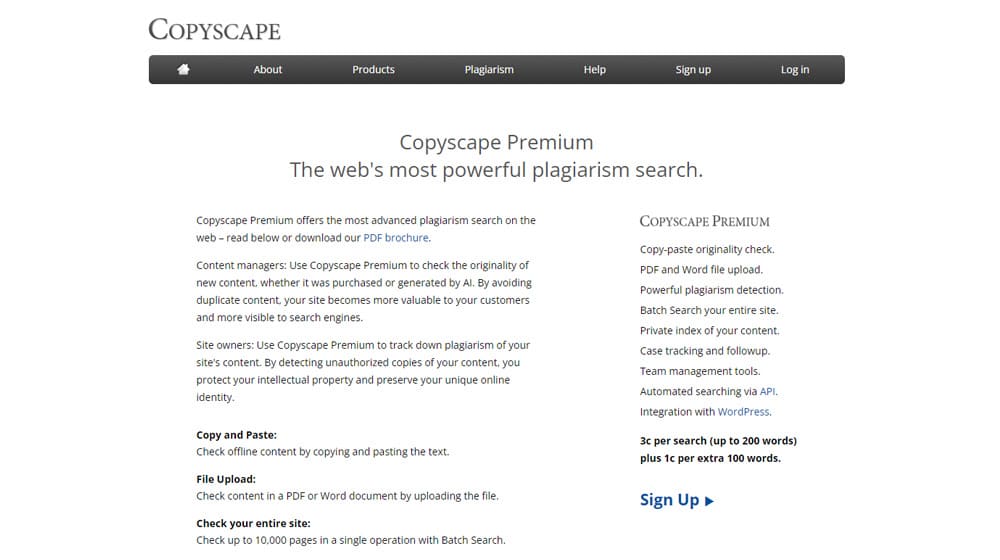
Unfortunately, it doesn't look for AI content, and it's not really a modern or updated tool at this point, so I use it as my bar: anything that isn't at least as good as Copyscape isn't really worth considering.
Plagiarism Checker X
Despite the name straight out of the 90s, this is actually one of the better modern plagiarism checkers. It works well for a variety of kinds of content and wasn't explicitly made for papers and essays, which is great for businesses.
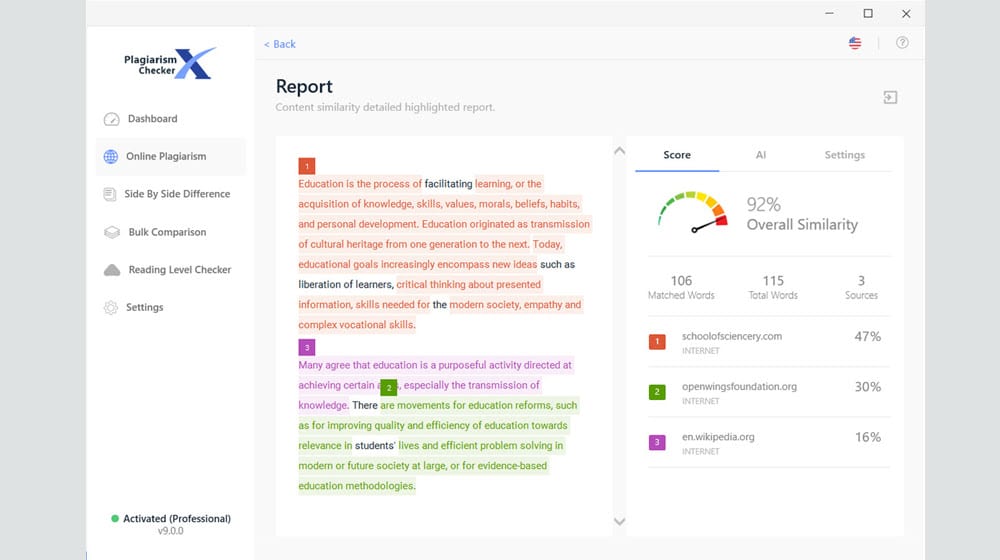
It's a tad pricey at $40 per month for the basic paid plan, but it does give you unlimited word count, so that's nice. It doesn't do AI checking, though, so you need another tool for that.
Plagiarism Check
In addition to a standard plagiarism checker, this service, with the world's most generic name, has a pretty good AI content detector. It also has an "authorship fingerprint" analyzer, which allows you to submit a body of work from one author and a questionable piece that you suspect might be written by someone else. It's not terribly relevant for a business as long as the content is unique, but if you pay for one person to do the content and they outsource it to someone else, that might be a breach of contract, and this can be a way to identify it.
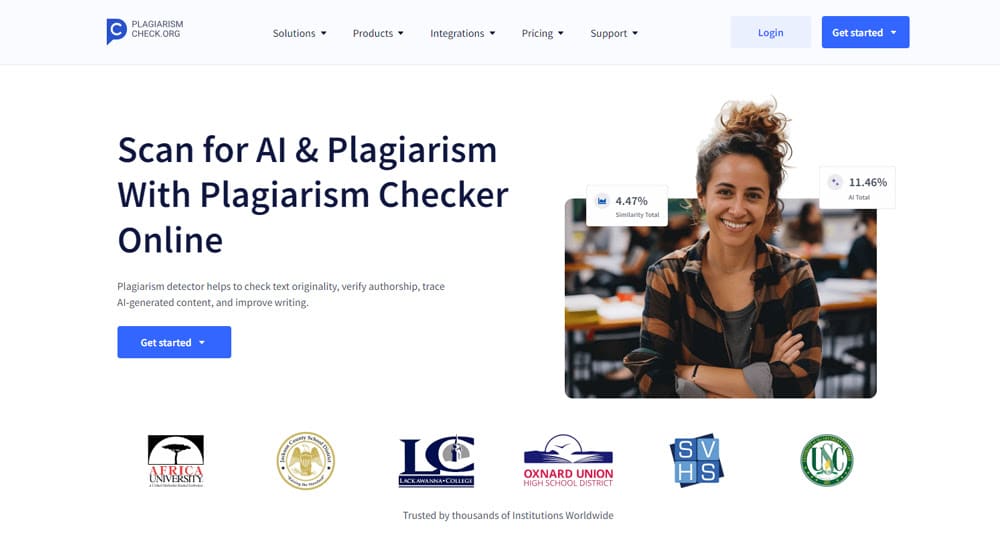
For businesses, it costs $70 for 1,000 "pages" of content, where a page is defined as 275 words. For reference, a post like this one would be about 8 "pages" of credits. The AI checker is a separate product and costs a flat $3 per month for 100,000 words.
Scribbr
One of the larger direct alternatives to TurnItIn, Scribbr is again primarily aimed at academic writing. It does offer an AI checker in addition to the plagiarism checker, and it claims to be able to detect ChatGPT, Gemini, and mixtures of AI and human text.
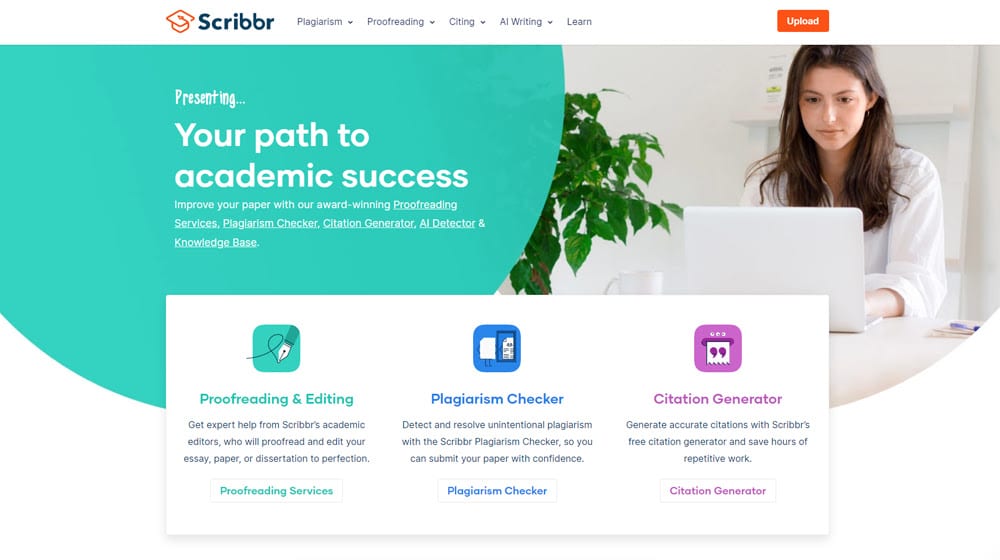
Overall, it's not a terrible tool, so if you're looking for something pretty comparable to TurnItIn but not focused on schools exclusively, this might be your option. The downside is the steep pricing; $20 is needed to check a single document of up to 7,499 words.
NoPlag
This one calls itself the #1 detector, which I'm not really sure is accurate, but you can be the judge.
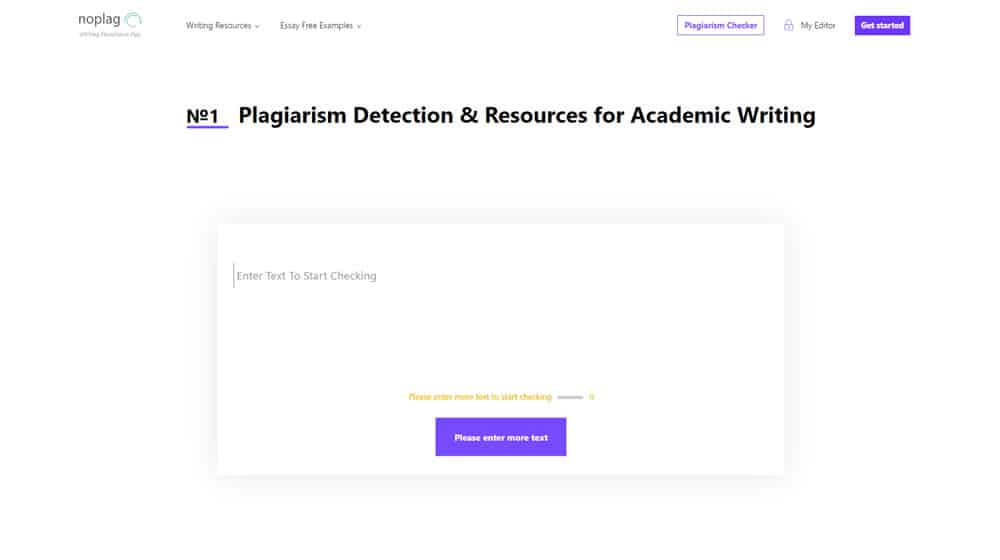
They offer a plagiarism checker but not an AI detector. In fact, they say their plagiarism detector uses AI to detect spun content, but not AI-made content, and they have an AI writing assistant, so I'm not really sure how much I trust their dedication to the cause. On the plus side, it's only $10 per month for their basic plan.
Academic Help
Academic Help is one of those tools that plays both sides, offering plagiarism and AI detection, as well as AI writing tools, so I'm not entirely confident in how well their AI detector works.
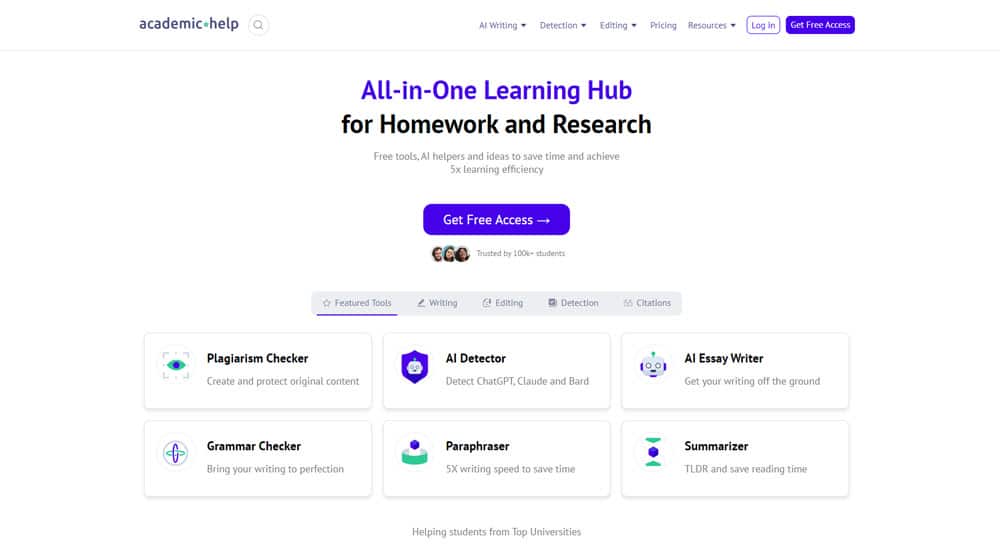
On the other hand, even their most expensive version with the highest quality iterations of all of their tools is only a bit over $8 per month, so it's cheap enough to give a try and see if it works for you.
Originality.AI
For all that I've dunked on AI throughout this post, why would I list an AI company? Well, it's not really an AI company; it's using the branding to attract attention.
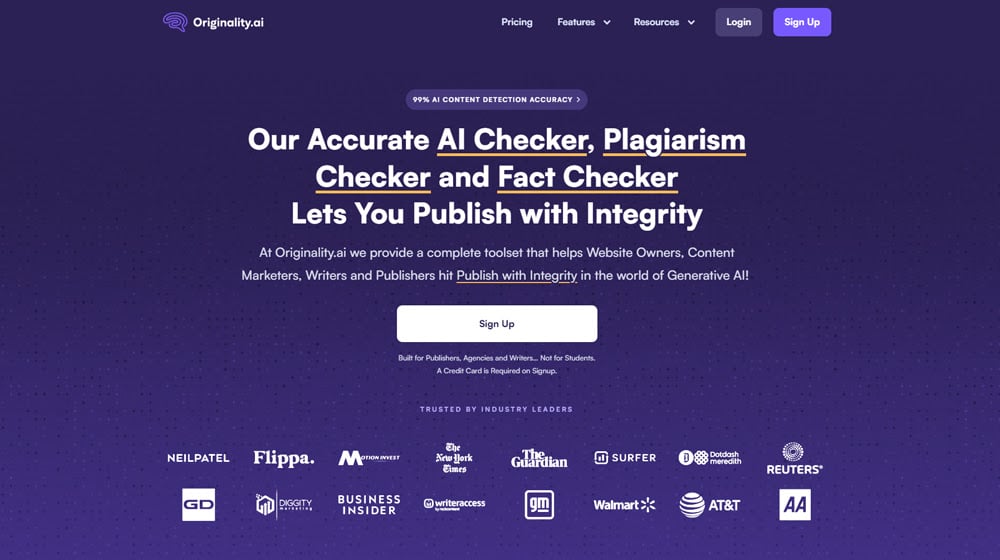
It's a fairly powerful AI detector, and in tests I've seen, it has one of the best rates of detection and the lowest false-positive rate. You can read a deeper analysis of it, alongside GPT Zero, in my comparison here.
Other Options
There are a few options I'm aware of but didn't put on the main list for one reason or another. I still want to list them, though, to head off people saying, "Hey, you missed X!" when I did know about it, I just thought it wasn't very good.
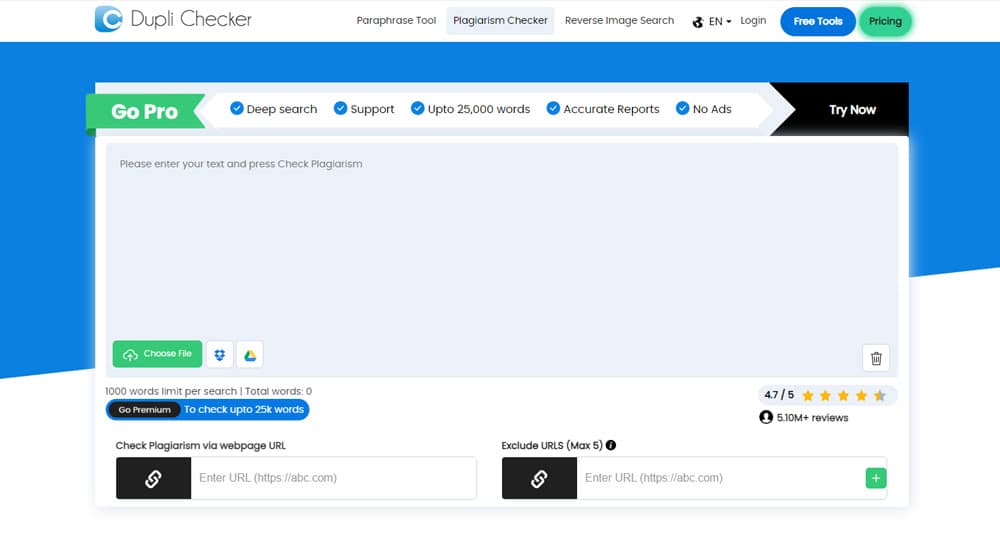
These options include:
- Duplichecker. Pretty ad-riddled and limited as a free tool, and it commonly misses easy examples of plagiarism in tests. I'm not sure what data sources they're using, but if Google can find it but they can't, I question it.
- PlagScan. This one isn't actually bad, but it's on the "others" list for two reasons. First, it's primarily meant for a German audience, though it works in English as well. Second, it's a TurnItIn service, so it's not really an alternative to TurnItIn, is it?
- Viper – Viper is a pretty good tool, but it's on this list because you should not use it for business content. This is because their free scan, in particular, will, after three months, upload your content onto one of their sites as an "example" of how to create that kind of content. In other words, you forfeit your rights to your own content. 100% avoid this one unless you want to pay for it, and even then, I'd question it.
- Copyleaks. Anyone familiar with the concept of AI hallucinations is probably right here with me when I say that an AI-powered plagiarism detector isn't something I'm going to trust without a lot of external validation ahead of time.
- Quillbot. This one is in the "others" list primarily just because I haven't validated whether or not it's good yet. They have some AI writing tools, but they're largely research and paraphrasing tools, not full writing tools, so they might be good. If you've used them, let me know!
- Small SEO Tools. This is a suite of small individual tools, most of which have nothing to do with plagiarism but are useful for niche SEO and marketing tasks. I like several of them, though I haven't given the plagiarism detector a chance yet. They also have an AI detector that might be worth trying.
And, of course, there are almost definitely many others out there. If it's not already on this list, feel free to mention it and tell me why you think it's a great option, and I'll check it out!



 30 Second Summary
30 Second Summary
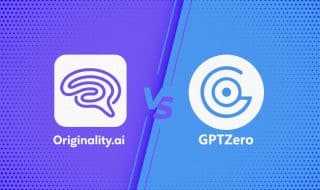


Comments